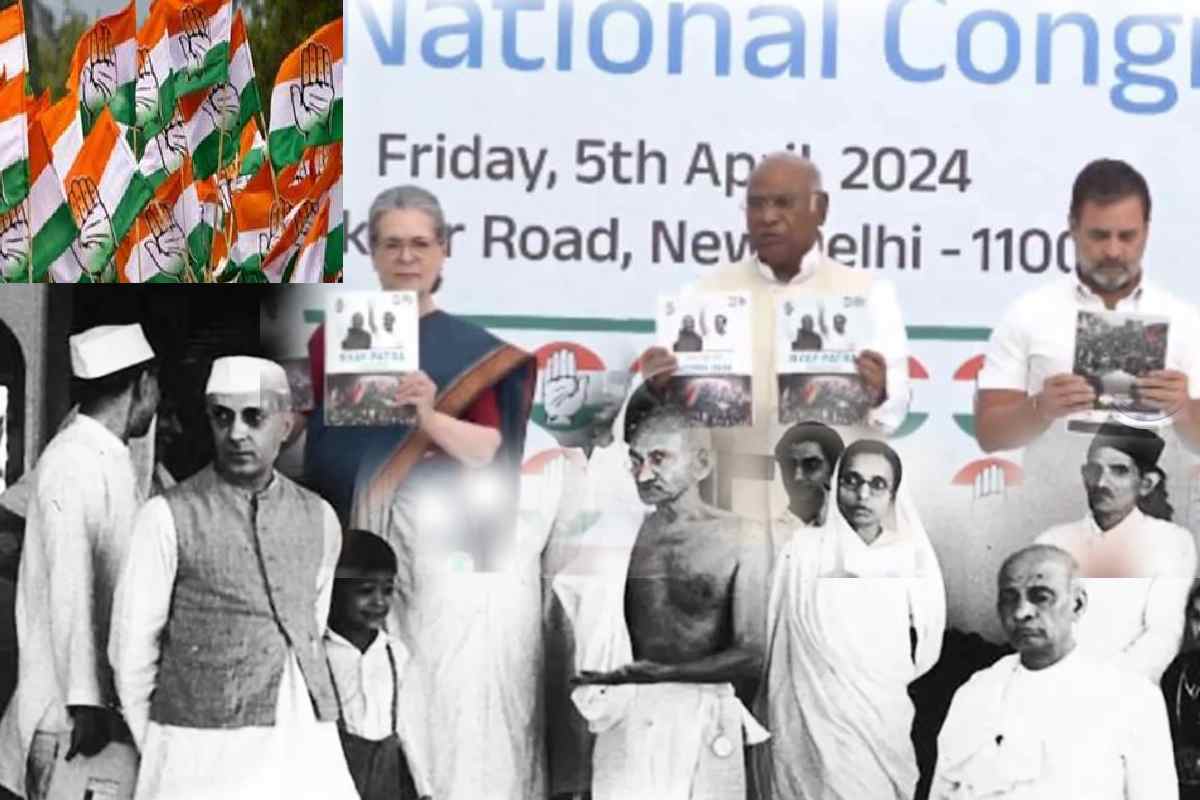New Delhi: As the political landscape heats up ahead of the upcoming elections, the Congress Party has unveiled its roadmap to bolster national security and foreign policy, signaling a departure from the narrative set by the current Modi government.
In a bid to recalibrate India’s foreign policy trajectory, the Indian National Congress has unveiled its comprehensive manifesto outlining key principles and strategies to steer the nation’s diplomatic course. Rooted in the legacy of India’s freedom movement and guided by the wisdom of visionary leaders like Jawaharlal Nehru, the Congress manifesto reaffirms its commitment to upholding continuity in India’s foreign policy.
In a bid to address concerns over India’s security and international standing, the Congress Party aims to chart a new course, presenting a compelling alternative to the ruling dispensation. It says, “Under the current BJP/NDA government, India’s foreign policy has witnessed significant departures from established norms, particularly evident in its handling of sensitive issues such as the ongoing Gaza conflict.
ALSO READ: DMK unveils manifesto countering NDA policies – THE NEW INDIAN
The Congress pledges to restore India’s global reputation as a bastion of peace and moderation in world affairs, aiming to realign the nation’s diplomatic compass with its historical ethos.”
Key highlights from the Congress manifesto include:
1. Adherence to Nehruvian Principles: The Congress vows to uphold the foundational principles of India’s foreign policy, deeply rooted in the ethos of peaceful co-existence and strategic autonomy.
2. Restoration of Consensus: Recognizing the importance of consensus in shaping foreign policy, the Congress aims to bridge the gap created by divergent approaches under the current administration, particularly in matters concerning global conflicts.
3. Commitment to Peaceful Co-existence: Emphasizing the relevance of peaceful co-existence and bilateral engagement, the Congress advocates for a balanced and pragmatic approach to international relations.
4. Strengthening Multilateralism: With a focus on enhancing India’s role in multilateral institutions, the Congress promises to collaborate with other nations, particularly those of the Global South, to address transnational challenges effectively.
5. Boosting Foreign Trade: Prioritizing the interests of Indian producers and consumers, the Congress pledges to expedite long-pending trade negotiations with other countries to bolster foreign trade relations.
6. Combatting Terrorism: Firmly opposing terrorism in all its forms, the Congress vows to collaborate with the international community to eliminate terrorist groups and cross-border terrorism.
7. Restoring International Image: Acknowledging the damage inflicted on India’s international image, the Congress pledges to address concerns of dissent suppression and human rights violations, fostering a more inclusive and tolerant environment.
8. Border Security and Defence Preparedness: Emphasizing the importance of border security, the Congress advocates for a pragmatic approach to territorial disputes, focusing on restoring stability and accessibility along India’s borders with China.
9. Neighbourhood Diplomacy: With a focus on enhancing relations with immediate neighbours, the Congress aims to strengthen ties with Nepal, Bhutan, Bangladesh, Sri Lanka, the Maldives, and Myanmar, fostering economic and cultural cooperation for mutual benefit.
10. Engagement with Pakistan: The Congress asserts that engagement with Pakistan hinges on its commitment to curbing cross-border terrorism, emphasizing the need for constructive dialogue based on mutual trust and respect.
11. Expansion of Diplomatic Corps: To bolster India’s diplomatic outreach, the Congress pledges to increase the size of the Indian Foreign Service, establish additional missions abroad, and leverage economic strengths to emerge as a global leader.
12. Focus on Overseas Indians: Recognizing the importance of the Indian diaspora, the Congress proposes the revival of a dedicated Minister of State position within the External Affairs Ministry to address the concerns of overseas Indians effectively.
As India gears up for the upcoming elections, the unveiling of the Congress manifesto signals a significant shift in the country’s foreign policy discourse, reflecting a renewed commitment to Nehruvian ideals and a vision for a more inclusive and proactive role on the global stage.

